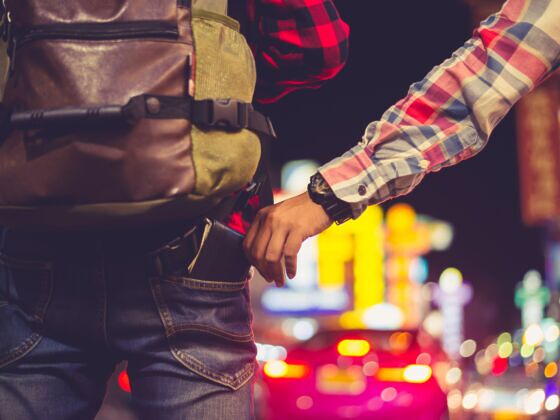YOU’RE WALKING DOWN a city street. It’s late, and you just want to get to the subway station and get back to your hostel for the night.
Suddenly, a man bumps against you, reeking of beer. Seeing you’re a tourist, he asks where you’re from and enthusiastically offers a handshake.
